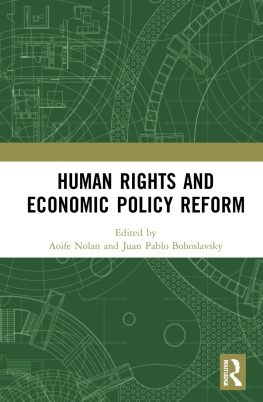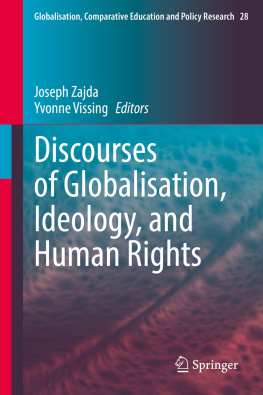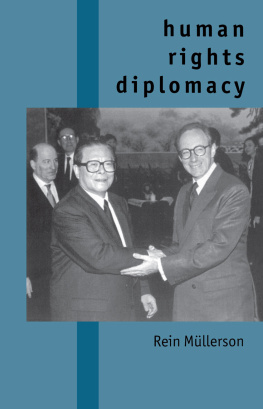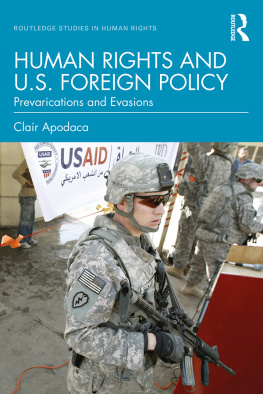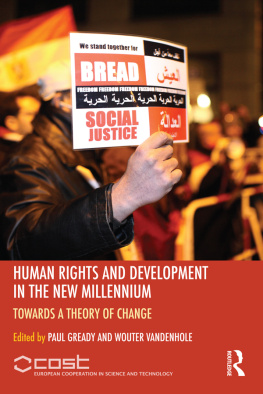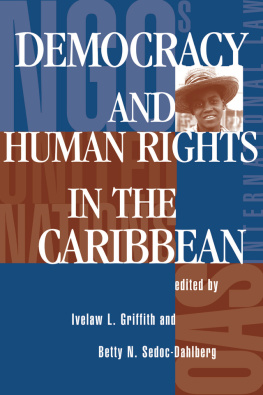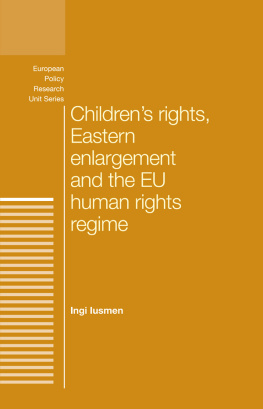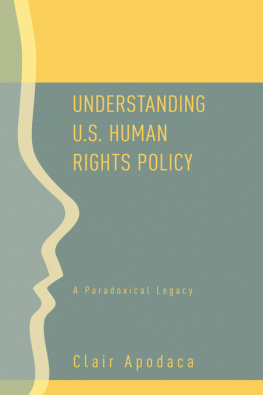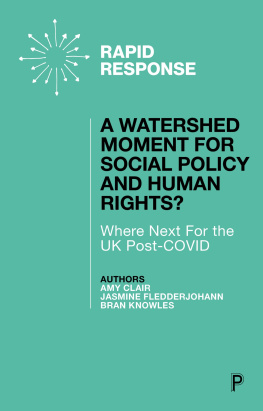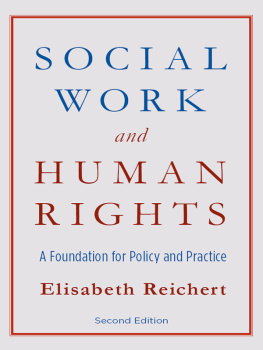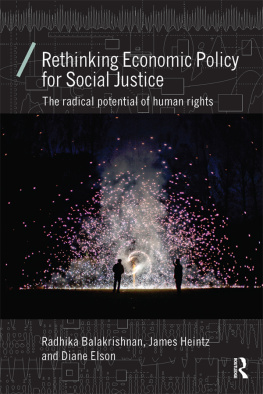Human Rights and Economic Policy Reform
This book deals with the complex and challenging relationship between economic policy and human rights. In the context of the COVID-19 pandemic crisis, the need to address the conceptual and methodological (dis)connects between these two areas is more pressing than ever.
Inspired by the 2019 United Nations Guiding Principles on Human Rights Impact Assessments (HRIA) for Economic Reform Policies, this book brings together experts working on human rights and economic policy from a range of disciplinary perspectives, including economics, law, and development studies. The contributions reflect a huge body of professional experience in the academic, policy-making, advocacy and practitioner fields. They cover issues including the politics of evidence in the context of HRIA, economic inequality, child rights impact assessment of economic reforms, economic policy and womens human rights, tax regimes for multinational corporations and human rights, as well as the human rights impacts of the economic fall-out of the COVID-19 pandemic. The collection also includes the text of the Guiding Principles themselves. It constitutes a crucial volume for scholars, policymakers, advocates and others working on the burning topic of human rights and economic policy reform.
The chapters in this book were originally published as a special issue of The International Journal of Human Rights.
Aoife Nolan is Professor of International Human Rights Law and Co-Director of the Human Rights Law Centre at Nottingham University School of Law, UK. She is Vice-President of the Council of Europes European Committee of Social Rights, which she joined in 2017. Her books include Childrens Socio-economic Rights, Democracy & the Courts (Hart, 2011), Applying an International Human Rights Framework to State Budget Allocations: Rights and Resources (Routledge, 2014) and Economic and Social Rights after the Global Financial Crisis (CUP, 2014). She has acted as an expert advisor to a wide range of international and national organisations and bodies working on human rights and economic policy issues, including UN Special Procedures, UN treaty bodies, the Council of Europe, the World Bank, and multiple NHRIs and NGOs.
Juan Pablo Bohoslavsky is currently a consultant on finance and human rights issues for international organizations. He was between 2014 and 2020 the United Nations Independent Expert on Debt and Human Rights. He has worked at the United Nations Conference on Trade and Development (UNCTAD) and as a consultant for the Argentine state and the United Nations Economic Commission for Latin America and the Caribbean (ECLAC). His latest books are Pinochets Economic Accomplices: An Unequal Country by Force (Lexington Boos, 2020), coedited with K. Fernndez and S. Smart, and Covid-19 y Derechos Humanos, La Pandemia de la Desigualdad (Biblos, 2020). He holds a PhD in Law from Universidad de Salamanca.
First published 2022
by Routledge
2 Park Square, Milton Park, Abingdon, Oxon, OX14 4RN
and by Routledge
605 Third Avenue, New York, NY 10158
Routledge is an imprint of the Taylor & Francis Group, an informa business
2022 Taylor & Francis
All rights reserved. No part of this book may be reprinted or reproduced or utilised in any form or by any electronic, mechanical, or other means, now known or hereafter invented, including photocopying and recording, or in any information storage or retrieval system, without permission in writing from the publishers.
Trademark notice: Product or corporate names may be trademarks or registered trademarks, and are used only for identification and explanation without intent to infringe.
British Library Cataloguing-in-Publication Data
A catalogue record for this book is available from the British Library
ISBN13: 978-1-032-00613-0 (hbk)
ISBN13: 978-1-032-00614-7 (pbk)
ISBN13: 978-1-003-17491-2 (ebk)
DOI: 10.4324/9781003174912
Typeset in Minion Pro
by codeMantra
Publishers Note
The publisher accepts responsibility for any inconsistencies that may have arisen during the conversion of this book from journal articles to book chapters, namely the inclusion of journal terminology.
Disclaimer
Every effort has been made to contact copyright holders for their permission to reprint material in this book. The publishers would be grateful to hear from any copyright holder who is not here acknowledged and will undertake to rectify any errors or omissions in future editions of this book.
Aoife Nolan and Juan Pablo Bohoslavsky

ABSTRACT
This article focuses on the vexed relationship between human rights and economic policy reform. It opens with an exploration of the reasons for the historic and contemporary nonalignment and disconnect between these areas. It then turns to an overview of the 2019 Guiding Principles on Human Rights Impact Assessments for Economic Reform Policies, developed under the mandate of UN Independent Expert on debt and human rights. Having introduced the different contributions to the Special Issue, the authors conclude by addressing the implications of the COVID-19 pandemic crisis for the relationship between human rights and economic policy reform. Will this crisis serve as an opportunity to accelerate mutual understanding or will human rights concerns remain subordinated to economic ones?
Introduction: a brief history of human rights and economic policy reforms
The vexed relationship between economic policy reform and human rights is a hot topic, with the global and financial crises that began in 20072008 rapidly accelerating academic, advocacy and policymaker attention to human rights and economic policy (dis)connects. and its potential impacts on human rights have become ever-more obvious.
It is important to recognise successes and ongoing challenges in terms of work focused on the link between human rights and economic policy up to this point. On the one hand, there has been growing deployment of human rights as a discourse and a conceptual framework to critique economic policy-making inputs, outputs and processes in terms of their impact on human dignity, lived experience and life opportunities. On the other, there has been ever-greater recognition of the serious challenges with regard to leveraging human rights so as to engage meaningfully with economic policy-making whether conceptually (in terms of standards), methodologically (in terms of tools) or in terms of practical impact.
Great strides have been taken on the conceptual front over the last decade through the development of understanding of the scope of human rights obligations from an economic
However, despite these advances, human rights impact on and traction in relation to economic policy-making remain weak. Tools and approaches developed by advocates and academics remain unembraced by key decision-makers on, and implementers of, economic policy. The foundational elements of reform.
This is the backdrop against which the Guiding Principles on Human Rights Impact Assessments for Economic Reform Policies (Guiding Principles/GP), the motivating factor for this Special Issue, were created and will be operationalised. It is also the context in which the contributors to this Special Issue have developed their work on human rights and economic policy reform.

